For movie lovers, there’s nothing quite like seeing your favorite stars shine, especially when their performances are finally recognized by the industry.
But even icons like Tom Hanks don’t always get their due. For every Oscar-winning role, there’s a hidden gem left in the shadows.
Hanks has starred in over 60 films, but plenty of his work has slipped under the radar, missing the all-time favorite movies lists despite his immense talent.
From Joe Versus The Volcano to The Ladykillers, some of his most fascinating roles came in films with lukewarm reviews, soft box-office returns, or no awards buzz compared to his top-rated performances.
Grab some popcorn and vote for the Tom Hanks performance you think was the most underrated, as we revisit these overlooked classics.
#1 Joe Versus The Volcano (1990)
This offbeat romantic comedy follows Joe Banks, a downtrodden office worker diagnosed with a mysterious “brain cloud” that sets him on a surreal quest to find meaning in his final days.
Tom Hanks plays Joe with both whimsy and melancholy, charting his evolution from a lifeless drone to a man awakened by love and possibility.
Along the way, he meets three wildly different women, each played by Meg Ryan, who help him rediscover joy and courage. Their presence adds heart and humor to Joe’s transformation.
The Numbers reports that the film only earned $39.4 million globally, a sharp contrast to the 1990s Home Alone, which grossed $290 million. By box office standards, it flopped.
Still, Hanks’ quirky, multi-layered performance gave the film staying power. Though critically dismissed at first, it’s since gained a cult following among fans who admire its dual-role experiment, satirical edge, emotional shifts, and the poetic absurdity woven through the plot.
The movie’s stylized direction and symbolic tone make it feel more like a fable than a standard rom-com, and that distinctiveness keeps it alive in cinephile circles.
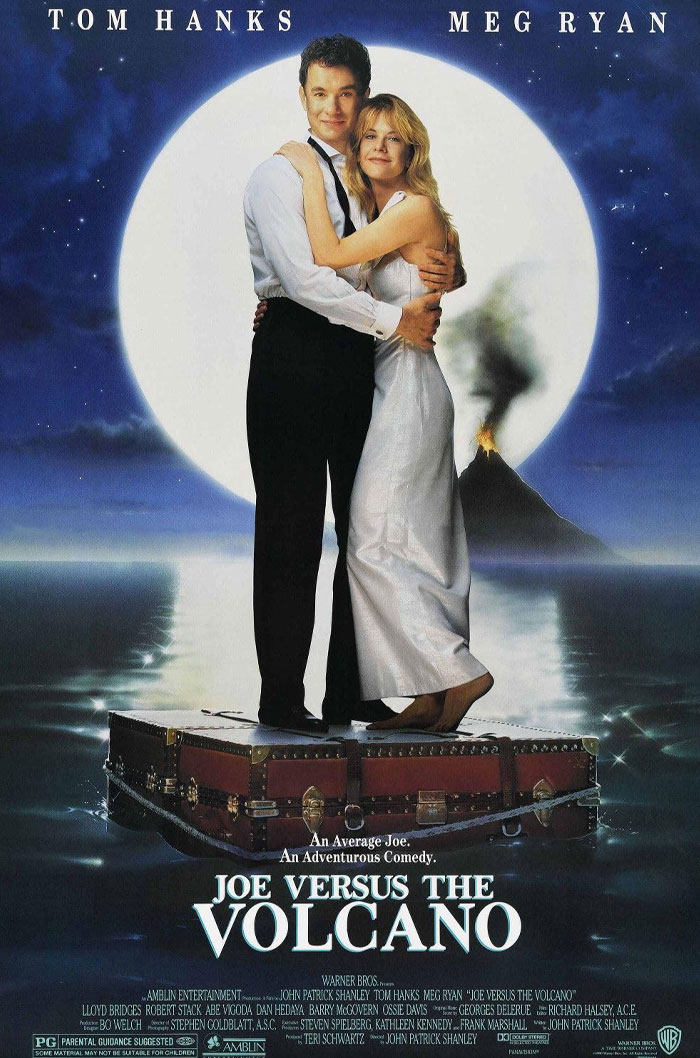
Image credits: Warner Bros.
#2 The Burbs (1989)
In this suburban satire-meets-thriller, Tom Hanks plays Ray Peterson, a man who plans a quiet staycation until strange new neighbors move in next door.
Egged on by his nosy friends, Ray spirals into paranoia and petty espionage, convinced the newcomers are hiding something sinister.
What follows is a slow-boil descent into neighborhood chaos. Hanks toes the line between everyman charm and cartoonish obsession, turning Ray into a hilariously anxious foil for the film’s darkly comedic tone.
The zigzagging mix of suspense and slapstick led to a mixed response from audience reviews, with many viewers finding the genre shifts too uneven to land.
Critics weren’t sold either, calling it a muddled fusion of horror and comedy that lacked bite in both areas.
Yet over time, The Burbs has gained cult recognition among fans of Hanks’ comedy, especially for its blend of genre absurdity with suburban neurosis.
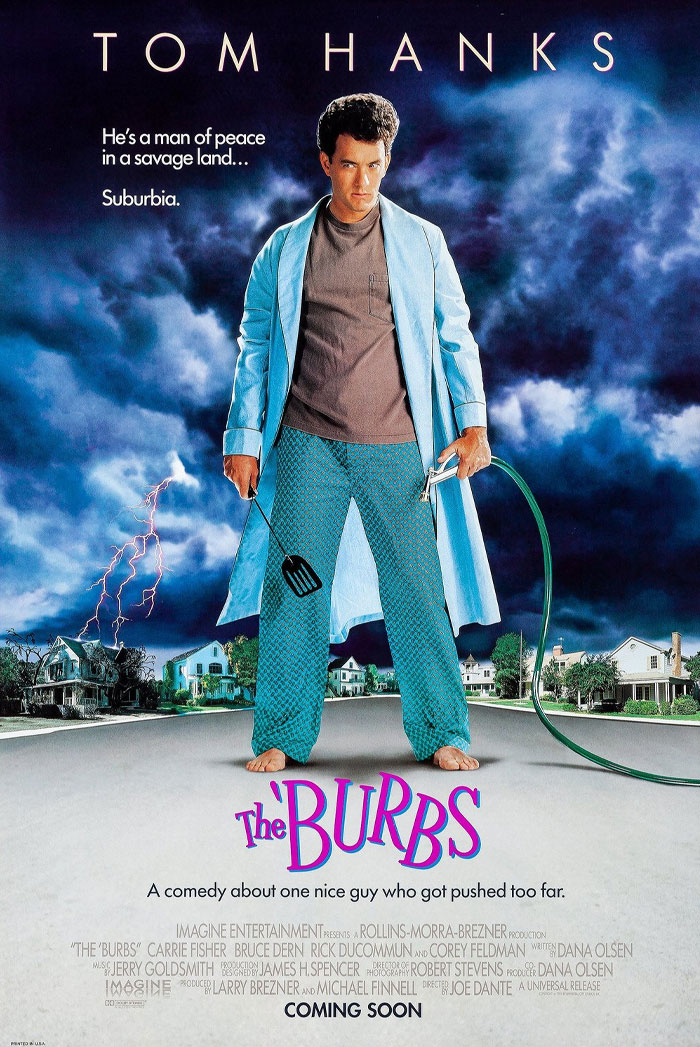
Image credits: Universal Pictures
#3 Road To Perdition (2002)
Tom Hanks delivers a haunting turn as Michael Sullivan, a loyal enforcer for Irish mob boss John Rooney (Paul Newman).
At home, Sullivan is a distant but devoted father and husband. At work, he’s a cold-blooded hitman. But when his son accidentally witnesses a mob killing, everything unravels.
In an effort to silence witnesses, Rooney’s unstable son Connor kills Sullivan’s wife and younger son. What follows is a dark, methodical tale of revenge, as Hanks transforms from a silent soldier to a father seeking justice.
The film won the 2003 Oscar for Best Cinematography. However, it was shut out of major categories like Best Picture, Best Actor, and Best Director, which still stings fans considering its rich storytelling and restrained performances.
Compared to emotionally overt contemporaries like The Pianist and The Hours, its quiet tone and sparse dialogue demanded more reflection. That meditative pacing may have cost it awards-season traction, but it’s exactly what gives the film its lasting depth.
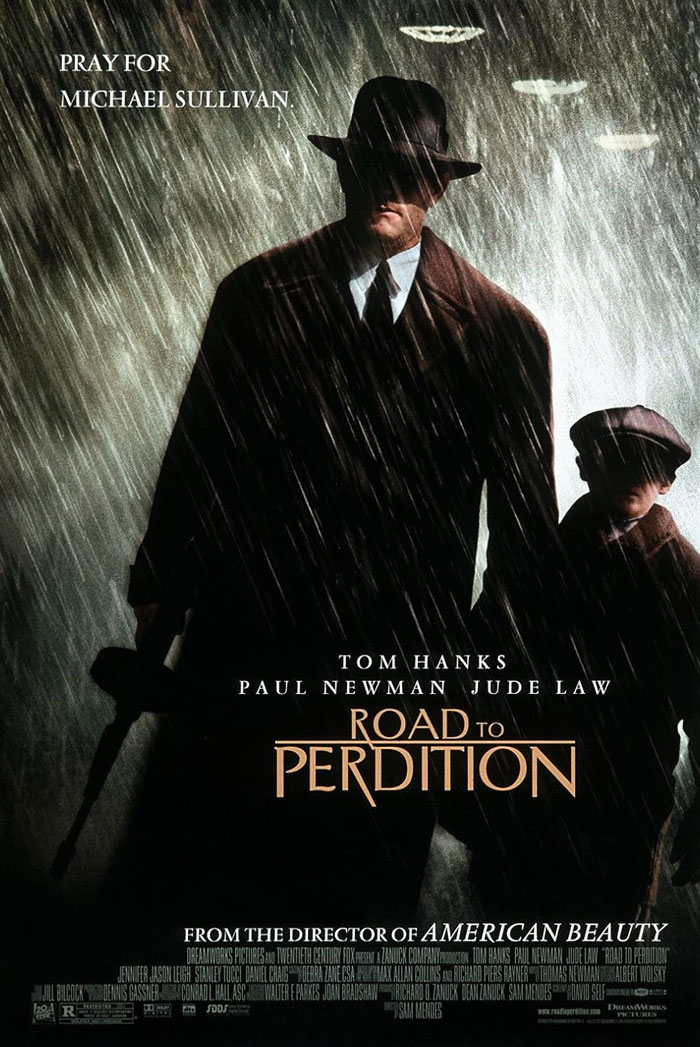
Image credits: DreamWorks Pictures
#4 The Terminal (2004)
Inspired by the true story of Mehran Karimi Nasseri, The Terminal stars Tom Hanks as Viktor Navorski, a traveler from the fictional country of Krakozhia.
When a sudden coup erupts back home, the US no longer recognizes his government, rendering his passport invalid. Stuck in limbo at JFK Airport, Viktor can't enter the country or return home.
Hanks brings Viktor to life with gentle humor and quiet optimism, crafting a performance that’s both naive and resourceful.
He turns the airport’s departure lounge into a makeshift home, forming bonds and finding purpose despite his confinement.
Upon its 2004 release, critics offered mixed reviews. Many praised Hanks’ likability, but some dismissed the film as overly sentimental and too soft in tone, especially in a post-9/11 climate.
Viktor’s invented accent also polarized audiences.
While it earned modest box-office numbers and no major awards, the film’s empathy-driven storytelling has earned fresh admiration. Today, it stands as a tender portrait of dignity in uncertainty.
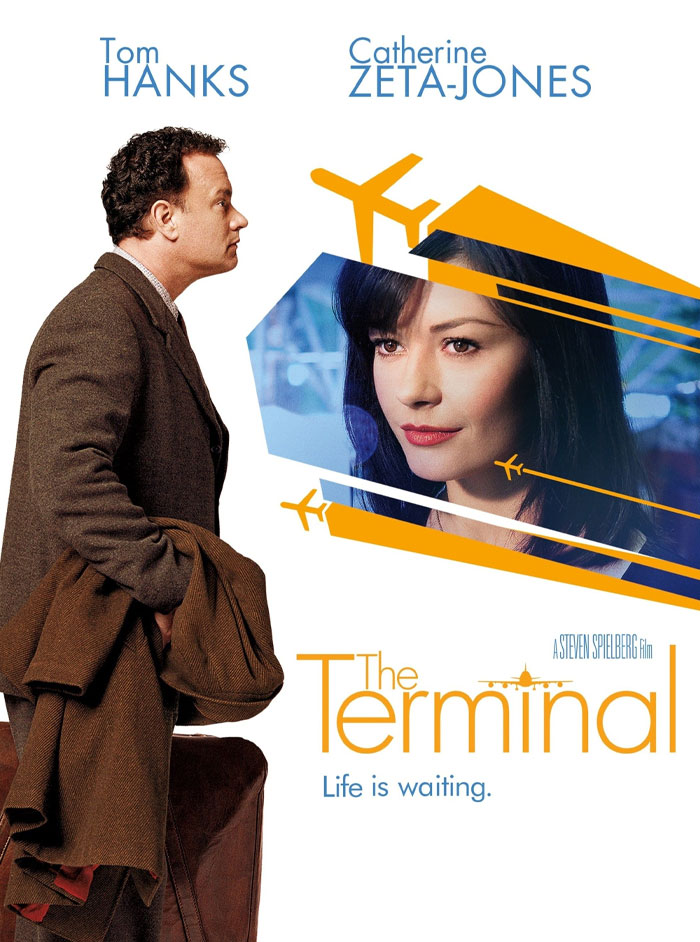
Image credits: DreamWorks Pictures
#5 Greyhound (2020)
In Greyhound, Tom Hanks stars as Commander Krause, tasked with leading an Allied convoy across the perilous “Black Pit” during World War II, a stretch of ocean beyond air support and deep within U-boat territory.
Fatigued, spiritually burdened, and relentlessly pursued, Krause must navigate the chaos with precision and resolve.
Hanks plays Krause with a blend of authority and quiet vulnerability. His stoicism conceals the immense emotional weight of safeguarding lives while making split-second decisions under fire.
Released during the early months of the pandemic lockdown, the film bypassed theaters and debuted on streaming, muting what might’ve been a stronger cultural resonance.
Many viewers also expected a conventional war epic but found something quieter and more procedural.
Still, its authenticity, pared-down tension, and reverence for naval protocol have earned growing appreciation. Hanks anchors the experience with a tightly coiled yet deeply human performance.
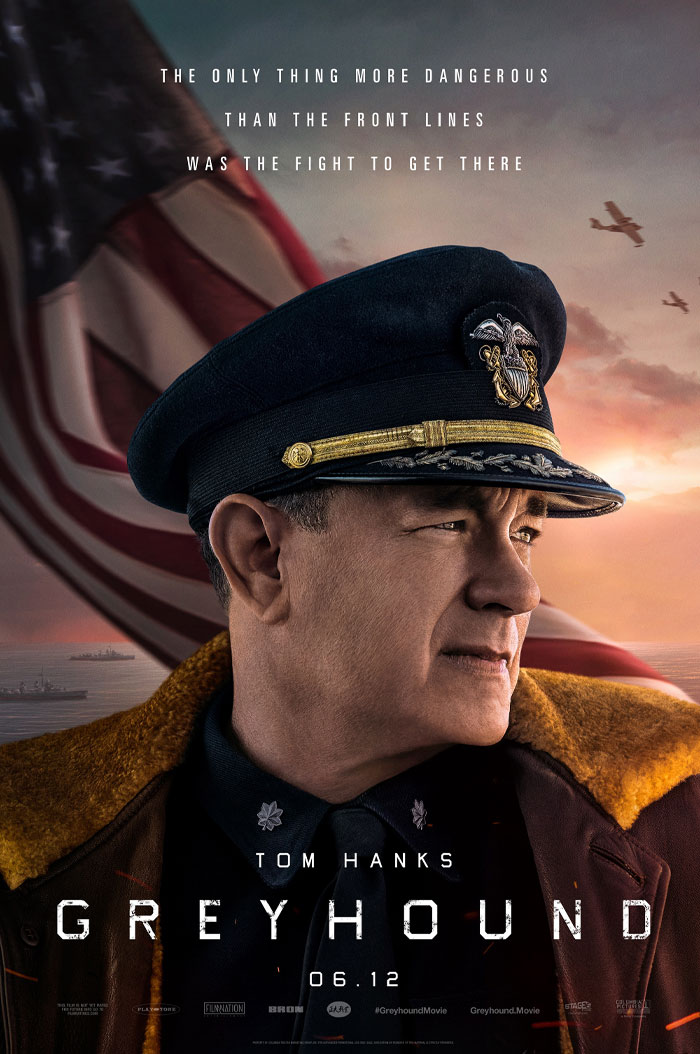
Image credits: FilmNation Entertainment
#6 A Hologram For The King (2016)
Tom Hanks plays Alan Clay, a washed-up corporate executive hoping to land a lucrative deal in Saudi Arabia by pitching a 3D holographic system to the government.
But instead of a sleek sales mission, he finds himself stuck in a surreal bureaucratic maze where meetings are delayed, communication stalls, and uncertainty reigns.
Stranded in a tent far from the main compound, Alan grapples with jet lag, heat, and personal isolation. Over time, he forms a tentative friendship with his driver, Yousef, and begins an understated romance with a local doctor, Zahra.
Hanks delivers a fragile, world-weary performance that balances awkwardness and grace.
On release, critics gave the film lukewarm reviews, unsure whether to categorize it as drama or offbeat comedy. Its tone felt too soft to compete with the year’s flashier prestige titles.
But the film’s quiet mood, cultural introspection, and emotional restraint have since won it late-blooming appreciation.
A decade on, it stands as one of Hanks’ most quietly affecting roles.
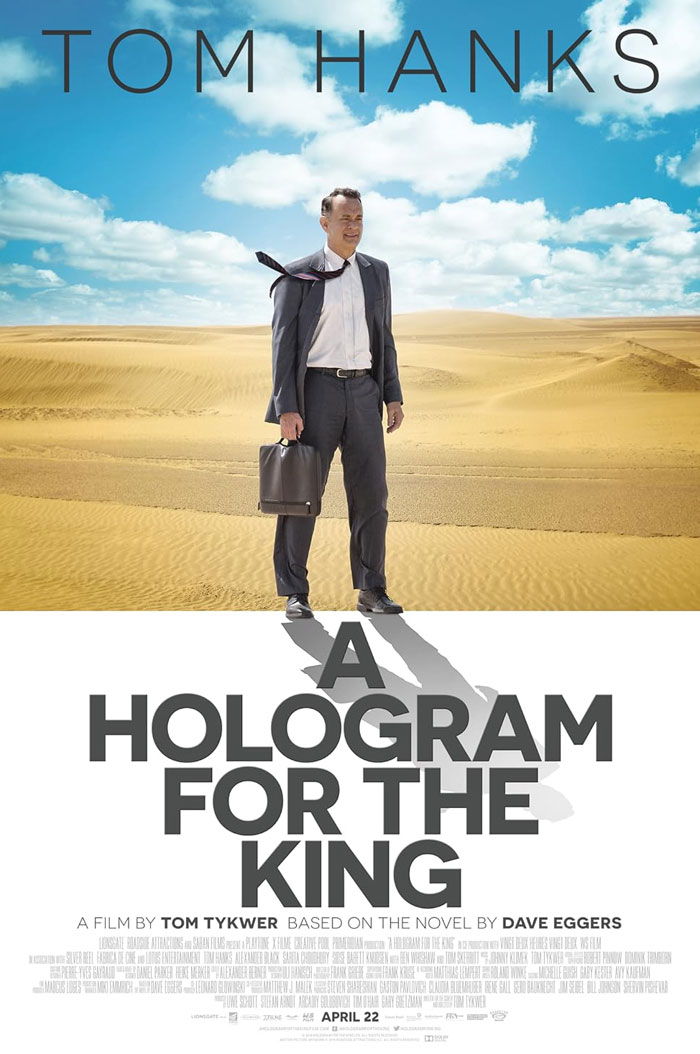
Image credits: Fábrica de Cine
#7 Cloud Atlas (2012)
Cloud Atlas spans six interconnected stories across centuries, with Tom Hanks portraying a diverse array of characters, from a villainous doctor to a future-era survivor.
Through reincarnation and transformation, each narrative reveals how individual actions ripple through time, linking lives across past, present, and future.
Upon release, critics were sharply divided. Some dismissed the film as bloated and incoherent, while others applauded its ambition and philosophical reach.
Its nonlinear structure, sprawling cast, and genre-melding style made it feel ahead of its time and easy to misinterpret.
Box Office Mojo reported global earnings of $130.7 million against a $102 million budget, making it a financial disappointment.
Still, the film has since earned cult status for its narrative daring and emotional scope. Hanks’ chameleonic performance anchors a movie that explores identity, legacy, and the unseen threads connecting human experience.
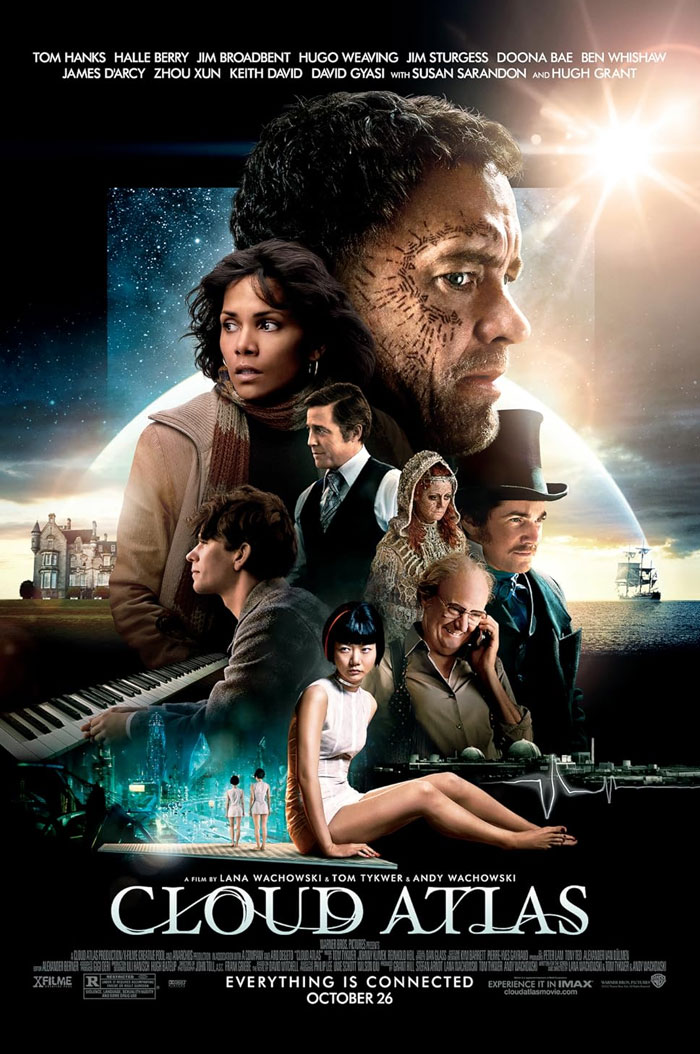
Image credits: X Filme Creative Pool GmbH
#8 News Of The World (2020)
In the wake of the Civil War, News Of The World stars Tom Hanks as Captain Jefferson Kyle Kidd, a weary veteran who travels town to town reading newspapers aloud to frontier communities.
In Texas, he encounters Johanna, a ten-year-old orphan raised by the Kiowa tribe after her family was killed.
Johanna is being forcibly returned to estranged relatives, and Kidd reluctantly agrees to escort her across rugged terrain.
As they journey together, a quiet bond forms, with Hanks channeling stern authority and tender empathy in a performance that anchors the film’s emotional pulse.
Like Greyhound, this film debuted during the height of the pandemic, limiting its theatrical impact despite multiple award nominations. Without a wide release, its powerful storytelling slipped past many viewers.
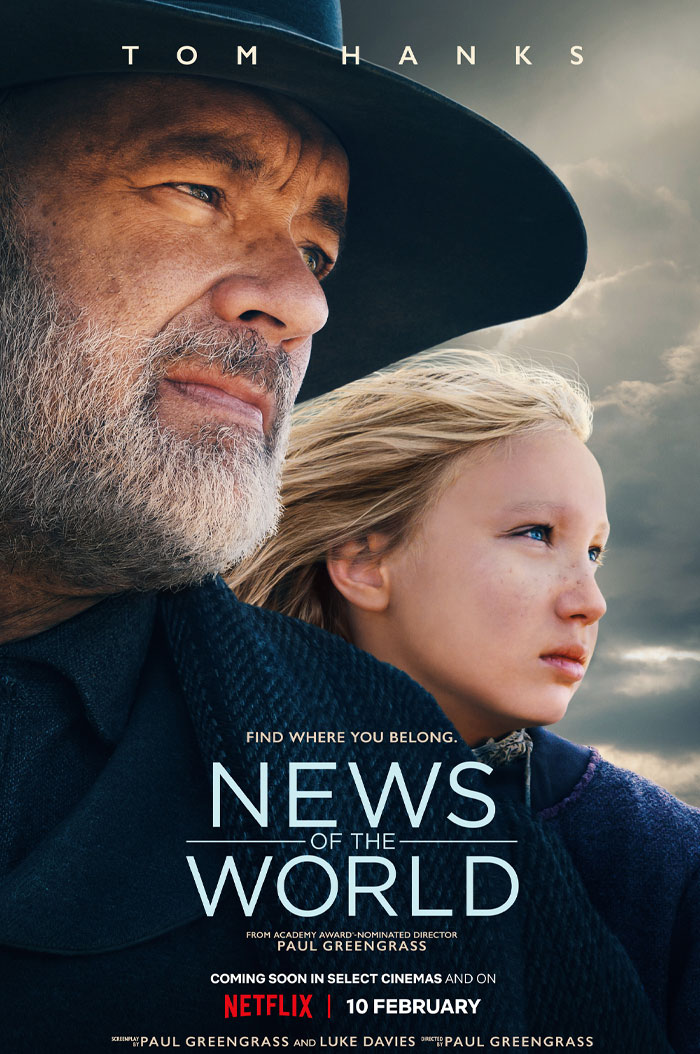
Image credits: Universal Pictures
#9 The Ladykillers (2004)
A Southern Gothic twist on the 1955 British original, The Ladykillers follows a group of bumbling criminals who masquerade as a classical music ensemble while plotting a robbery.
They set up shop in the basement of a devout widow’s house only to be undone by their foolishness and infighting.
Tom Hanks plays the eccentric ringleader, Professor G.H. Dorr, whose genteel charm hides a criminal mind.
The role marked a sharp departure from Hanks’ usual lineup of noble protagonists.
While Hanks’ performance drew praise, the film itself was widely panned. Rotten Tomatoes described it as the “nadir of the Coen Brothers’ directorial career,” and critics struggled with its tonal imbalance and broad characterizations.
Over time, though, the film has earned a niche following for its sharp language, macabre humor, and theatrical absurdity. Hanks’ turn as the verbose, villainous Dorr remains a bold detour in his filmography.
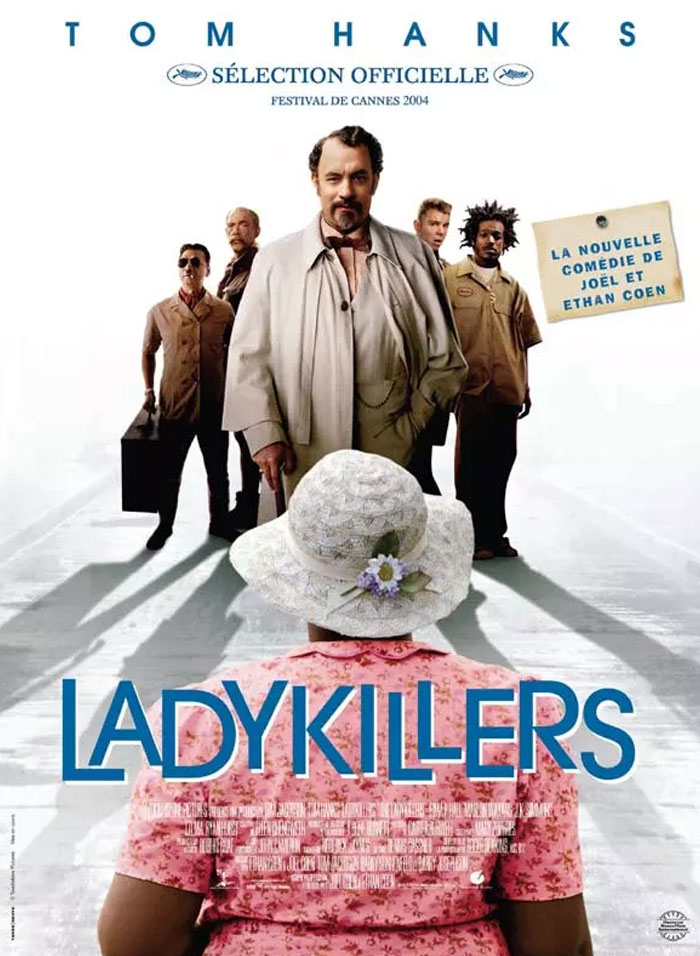
Image credits: Mike Zoss Productions
#10 Finch (2021)
Set in a scorched, post-apocalyptic Earth, Finch stars Tom Hanks as one of the last known survivors of an environmental collapse. Knowing his limited time, Finch Weinberg builds a robot to care for his beloved dog after he’s gone.
When a massive storm forces them to flee, the unlikely trio sets out on a cross-country journey in search of safety and connection.
Hanks gives a nearly solo performance, with the robot (voiced by Caleb Landry Jones) as his only companion.
What begins as a utilitarian creator-machine relationship gradually shifts into something more emotional, like a father-and-son dynamic.
Released on Apple TV+ just as pandemic restrictions were easing, the film flew under the radar. Many misread it as a standard survival drama, overlooking its deeper meditation on love, legacy, and companionship.
Hanks anchors the film with quiet vulnerability and moral resolve. Finch stands out for its gentle tone and emotional resonance in a genre crowded with noise and spectacle.
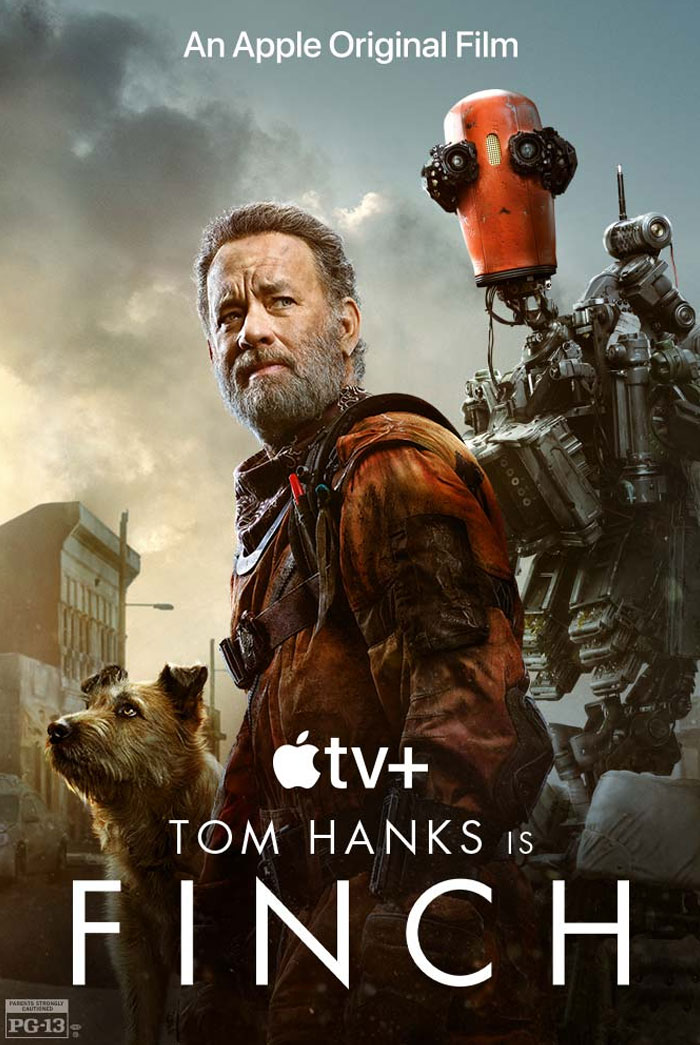
Image credits: Amblin Entertainment
#11 Punchline (1988)
Punchline follows two aspiring comedians navigating the competitive stand-up scene in New York City. Tom Hanks plays Steven Gold, a brilliant but unstable med school dropout whose biting wit masks deeper personal struggles. He meets Lilah Krytsick (Sally Field), a housewife with raw talent and a quiet determination to succeed.
Their odd-couple friendship evolves as they face the grind of open mics, bombing sets, and personal sacrifice. Hanks delivers a fiery, magnetic performance, blending manic energy with emotional complexity.
At the time, the film’s shifting tone between drama and comedy divided critics. Its depiction of stand-up culture felt offbeat and exaggerated to some.
According to The Numbers, it earned $21 million at the box office, which is a very modest return.
But in hindsight, Punchline is a revealing showcase of Hanks’ range before his career peaked. From intense monologues to layered vulnerability, his performance foreshadowed the depth he’d bring to later iconic roles.
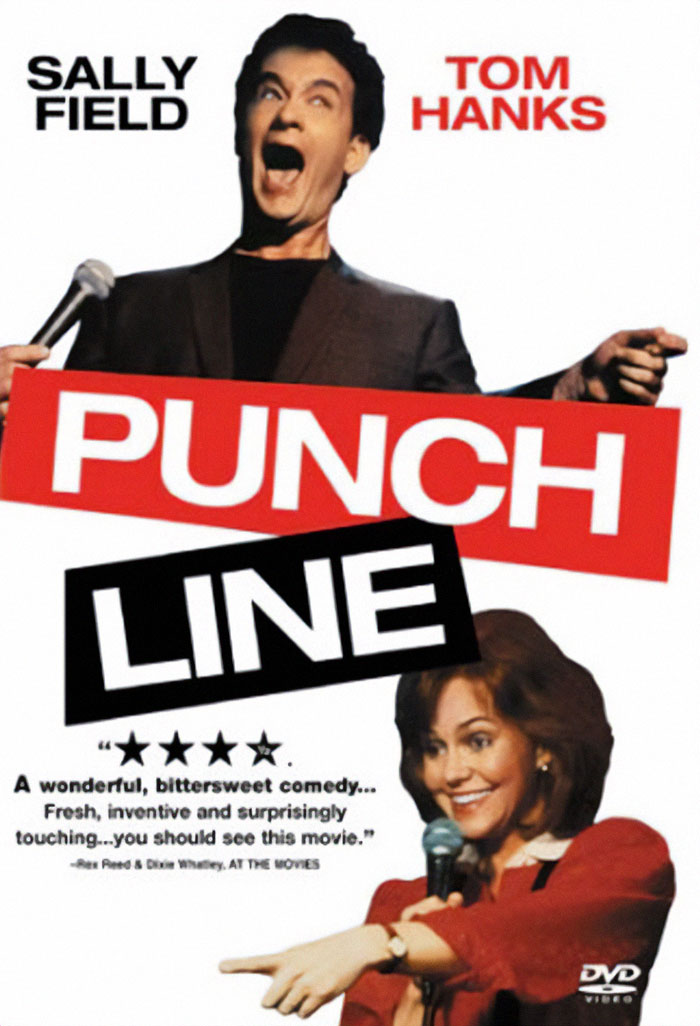
Image credits: Columbia Pictures
#12 Larry Crowne (2011)
In this feel-good comedy, Tom Hanks plays Larry Crowne, a cheerful retail worker who’s abruptly laid off due to his lack of a college degree. Determined to reinvent himself, he enrolls in community college and joins a public speaking class that changes the trajectory of his life.
There, he builds friendships, discovers new passions, and strikes up a gentle romance with his professor, played by Julia Roberts.
Hanks, who also co-wrote and directed the film, brings warmth and quiet resilience to the title role.
According to Box Office Mojo, the film grossed $75 million against a $30 million budget, which was an underwhelming return for a project headlined by Hanks.
Still, Larry Crowne has found a modest second life thanks to its uplifting tone and message about late-in-life reinvention. It’s a quiet reminder that optimism and growth aren’t confined to youth.
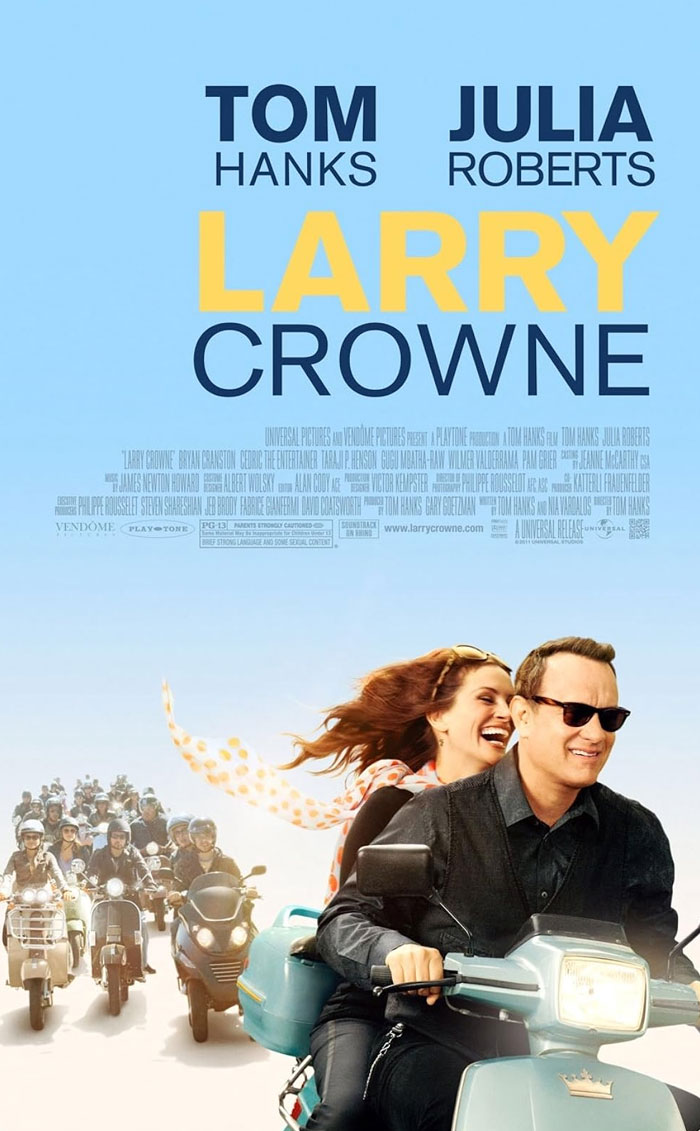
Image credits: Universal Pictures
#13 The Polar Express (2004)
Adapted from the beloved 1985 children’s book, The Polar Express is a holiday fantasy that follows a young “Hero Boy” who boards a magical train to the North Pole on Christmas Eve. The boy grapples with belief, wonder, and the season’s magic as they travel through snow-covered landscapes and surreal encounters.
Tom Hanks voices five distinct characters: Hero Boy’s father, the conductor, a mysterious hobo, Santa Claus, and the narrator.
The contrast between the conductor’s firm authority and the father’s tenderness deepens the film’s emotional core.
Despite its ambitious motion-capture animation, the film received mixed reviews. Some critics found the characters visually unsettling and emotionally flat.
Domestically, it fell short of its $165 million budget. But over time, its annual re-releases have turned it into a Christmas staple.
With international revenue and reappraisal, The Polar Express has gained traction as a seasonal classic.
Hanks’ multi-role performance continues to earn praise for the cohesion and warmth it brings to a visually ambitious tale.
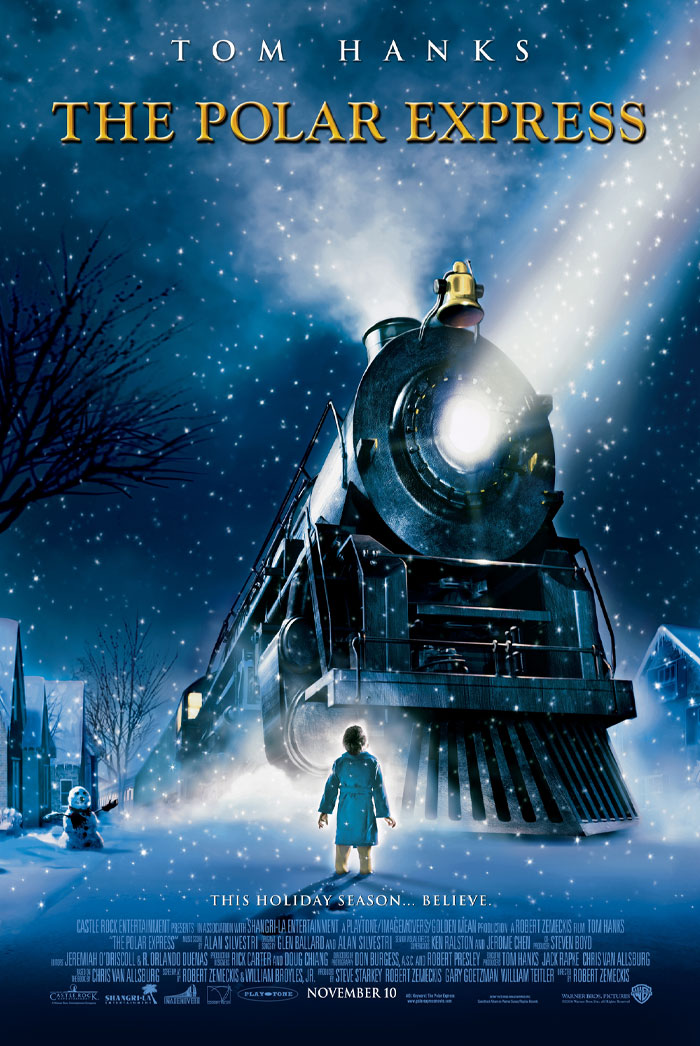
Image credits: Warner Bros.
#14 Charlie Wilson’s War (2007)
This political dramedy stars Tom Hanks as Charlie Wilson, a hard-partying Texas congressman who orchestrates one of the most consequential covert operations of the Cold War.
With the support of a Houston socialite and a wily CIA agent, Wilson channels his influence to arm Afghan resistance fighters against Soviet forces in the 1980s.
Hanks leans into Wilson’s contradictions, charm, vices, and political shrewdness with a performance that’s both breezy and impactful.
He grounds the satire with emotional heft, especially in moments highlighting Wilson’s efforts’ long-term fallout.
Despite its sharp script and timely themes, it struggled to stand out in a competitive 2007 awards season.
It earned just one Oscar nomination and picked up a few minor accolades. Financially, it performed modestly, grossing $119.5 million on a $75 million budget.
Still, the film found lasting favor with viewers. On IMDb, over 120,000 users rate it 7/10, and it holds strong scores on Rotten Tomatoes: 82% from critics and 73% from audiences.
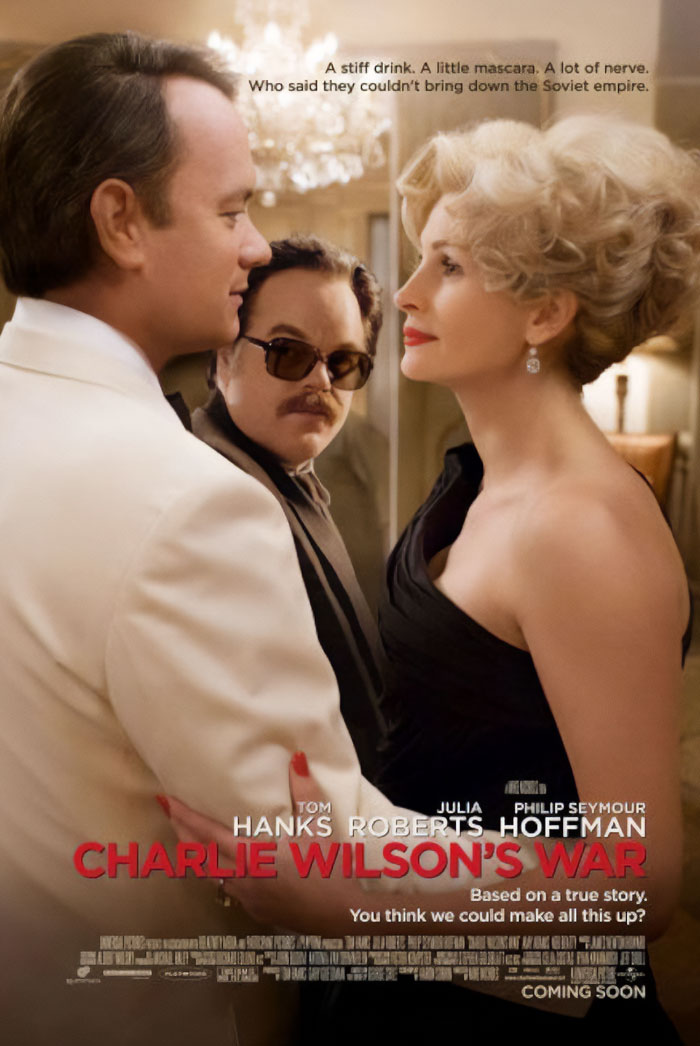
Image credits: Universal Pictures
#15 Bachelor Party (1984)
In this raucous ’80s comedy, Tom Hanks plays Rick Gassko, a carefree school bus driver preparing to marry his longtime girlfriend.
To celebrate, his buddies throw him a bachelor party quickly spiraling into full-blown mayhem.
Over one outrageous night, the crew faces strippers, Substance mix-ups, and car chases, while Rick’s ex and disapproving future in-laws try to derail the wedding.
Hanks delivers a high-energy performance, full of charm and quick wit, that anchors the movie’s chaotic antics.
Though critics at the time dismissed it as a “foul, outdated collection of filthy, entitled male-chauvinist attitudes” (Rotten Tomatoes), the film has since earned cult status.
Viewed through the lens of its era, Bachelor Party stands as a wildly irreverent comedy, carried by Hanks’ magnetic, youthful presence.
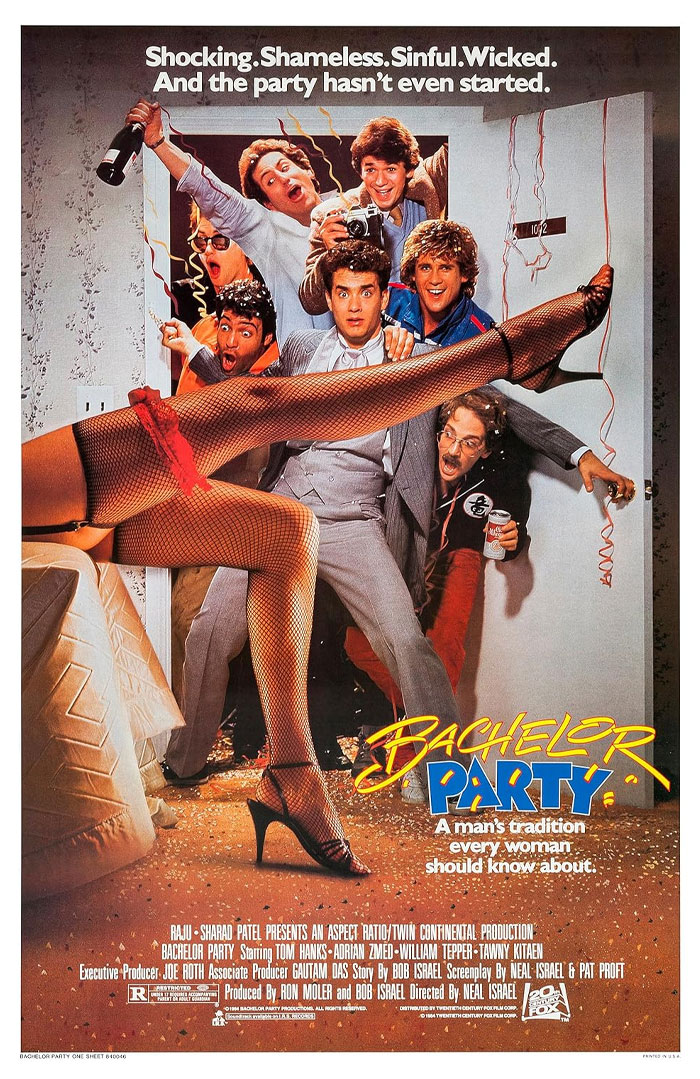
Image credits: 20th Century Studios
FAQ
What is considered Tom Hanks‘ best movie?
IMDb and British GQ both rank Forrest Gump as Tom Hanks’ top film.
What is Tom Hanks’ biggest film?
Based on global box office numbers, Hanks’ highest-grossing movie is The Da Vinci Code, which earned $758 million worldwide (per IMDb). Forrest Gump and Angels and Demons follow.
What are the last three Tom Hanks movies?
Hanks’ most recent films are The Phoenician Scheme (2025), Here (2024), and Freaky Tales (2024).
Why did Tom Hanks lose weight recently?
The Mirror reports that Hanks was diagnosed with type 2 diabetes in 2013. He’s adopted a healthier diet, regular exercise, and lost weight to manage the condition.







